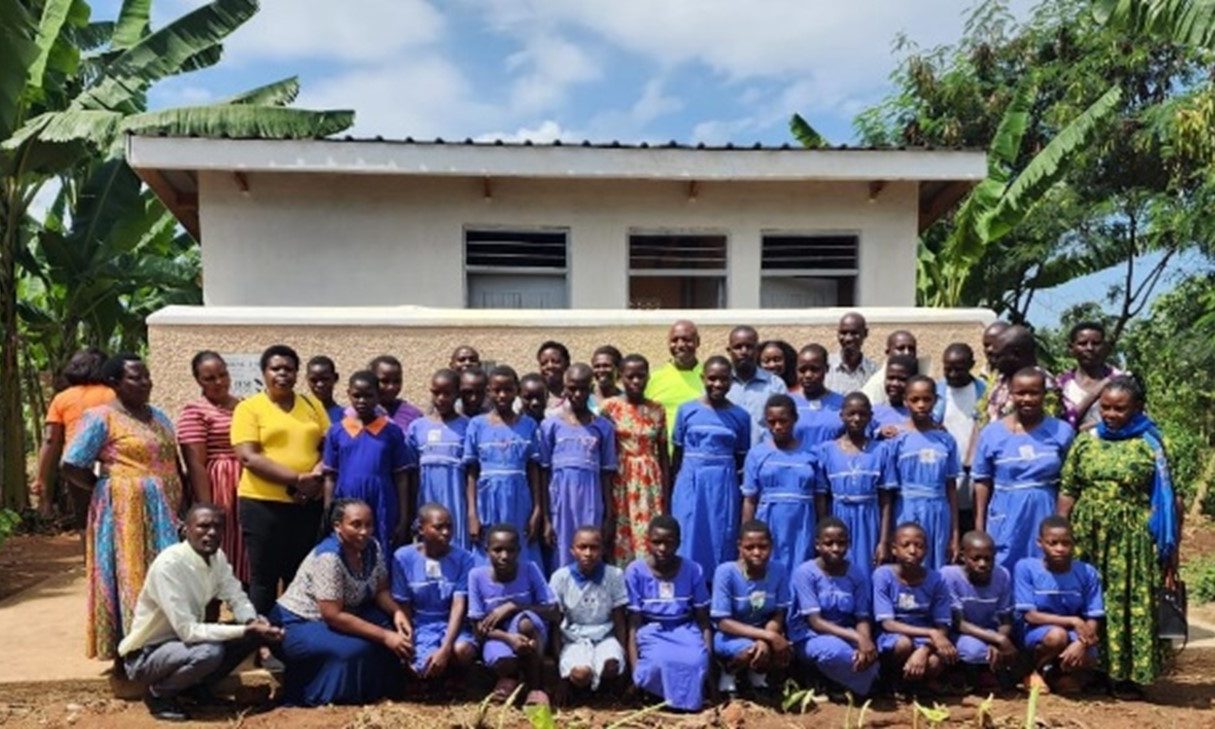
Sharing one communal toilet at school with about 70 boys and girls. This is often the daily practice at Rushoroza Primary School and Bukorwe Primary School in Kanungu district in western Uganda. Due to this lack of hygiene and privacy, girls in particular miss classes during their periods and achieve poor school results. Only 5% of school-aged girls can read. Through improved hygiene and education, this project increased the future prospects of 970 primary school pupils, 481 of whom are girls. It also empowered women in the community by producing washable sanitary pads.
Two toilet blocks with four toilets each (including one for children with disabilities), washing facilities and a water tank were built at the primary schools. This makes a big difference to girls’ school absenteeism during menstruation. On average, they miss one month a year of education. Girls also received training on menstrual hygiene with the aim of being better prepared for their future. In addition, women from the community learned to make washable sanitary pads. This contributes to both menstrual hygiene and their economic empowerment through product sales.
After the project ended in 2025, community members remained involved in sanitation management. In particular, the structural improvements in hygiene, privacy and education increase girls’ opportunities and help reduce early marriages. The women who make the sanitary pads can sell them at low cost to strengthen their social and economic position. Local authorities continue to monitor to ensure the impact and sustainability of the project.
The implementation of this project was a collaboration between the Dutch POWER Foundation and local partner Zonda Club Kampala with support from Stichting Wilde Ganzen. Active Health Foundation supported the project with a financial donation.
Would you like to help? Contribute in a way that suits you. Together, we make a healthy difference!